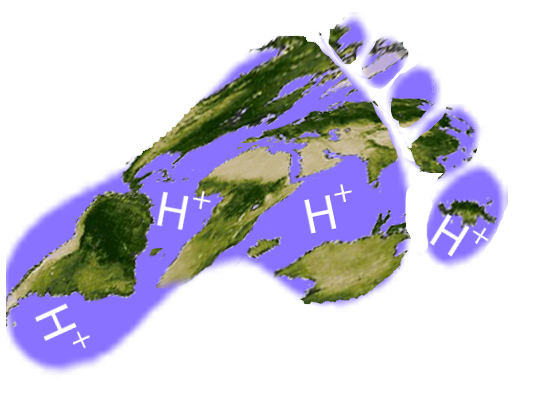
In addition to the famous impacts of atmospheric carbon on global warming, there is an equally worrisome effect of carbon dioxide on the oceans: ocean acidification (or OA for short). Here at I2SEA we have a series of resources about OA, including Our Acidifying Ocean, which is an introductory activity and virtual lab (note: now mobile compatible!).
A student suggested that we start a conversation topic about OA, and here it is! Have you heard about Ocean Acidification? If so, are you worried about it? How do you think we can best raise awareness about it among your fellow students and the general public? Have you seen particularly good links or films about OA that you would like to share? What are you doing to address the problem?
Ocean Acidification >
Ocean Acidification

Ocean acidification is the reduction of the earth’s PH. This can create conditions that eat away at the minerals used by oysters, clams, lobsters, shrimp, coral reefs, and other marine life to build their shells and skeletons. This causes a human health concern. Although ocean acidification doesn’t make the water dangerous for swimming, it can upset the balance of the multitude of microscopic life found. This can affect the seafood supplies for us humans while also deteriorating the oceans ability to store pollutants like carbon emission. Ocean Acidification reduces the amount of carbonate, a key building block in seawater. This makes it more difficult for marine organisms, such as coral and plankton when trying to form new shells and skeletons. The oceans have absorbed more than 150 billion metric tons of carbon dioxide emitted from human activities. Those activities include the burning of fossil fuels, agricultural activities, and deforestation. With the increase in those human activities, slow, long-term changes in the carbon cycle can influence ocean acidity over time. Today, more than a billion people worldwide rely on food from the oceans as their primary source of protein. About 20 percent of the world’s population derives at least one-fifth of its animal intake from fish. Since ocean acidification has a negative effect on marine species. This often alters the marine food chains and food supply to humans. As a way to help ocean acidification, humans can start by reducing carbon dioxide emissions at home, at the office, and on the road. Also another way that we can limit ocean acidification and help improve it is by acting on climate change and watching the amount of fossil fuels we use as a community. If we limit the amount of fossil fuels we use right now we can stop future harm to the oceans as well as future warming. Doing this we can significantly reduce the harm towards our marine ecosystem. Overall, Ocean acidification is something that might not be concerning to all but is definitely something that people to look at and try and solve. It won’t just take one person to try and solve the problem of ocean acidification but a whole community to try and solve an issue like this if we want a better future for our ocean.





